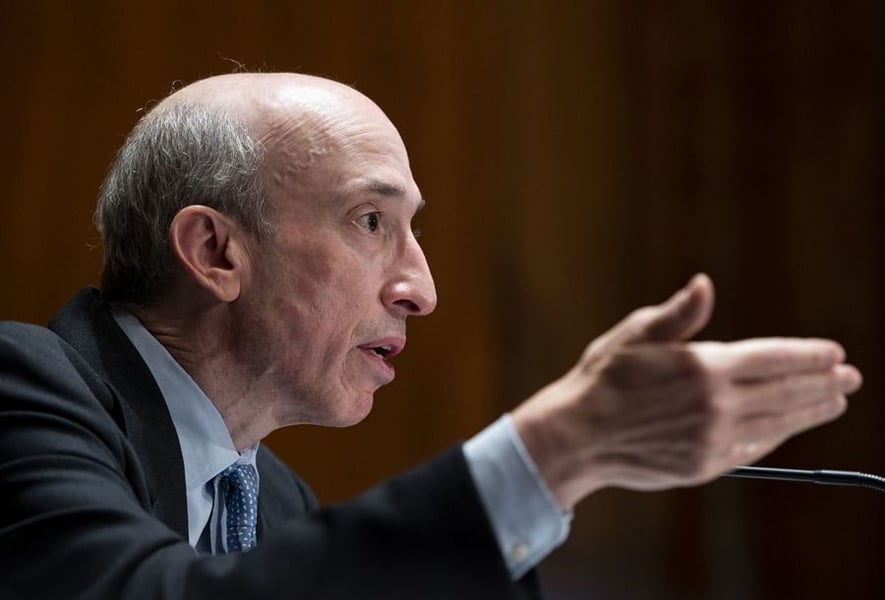

Artificial intelligence holds the promise of greater efficiency and effectiveness for financial advice but also the peril of heightened potential for conflicts of interest, SEC Chair Gary Gensler said Monday.
Gensler said that AI models enable “narrowcasting,” in the sense that they can be used to make predictions about individuals and communicate with each of them differently. That could mean zeroing in on unique characteristics of investors -- such as risk appetite, family and work background, and debt obligations – and helping financial advisors deliver recommendations that work particularly well for the precise profile of the customer.
On the other hand, narrowcasting also makes it easier “to find each individual’s maximum willingness to pay a price or purchase a product,” Gensler said in a speech at the National Press Club in Washington. That can lead to conflicts of interest.
“In finance, conflicts may arise to the extent that advisers or brokers are optimizing to place their interests ahead of their investors’ interests,” Gensler said.
He pointed out the SEC has on its regulatory agenda a potential rulemaking that targets advisor conflicts in the use of predictive analytics, machine learning and similar technologies as they apply to investor interactions.
“It really does provide potential to be much more effective and efficient,” Gensler said of AI’s impact on investment advice. But he warned about the potential downside of “narrowcasting and then sort of finding a way to steer us potentially into the wrong product for us because of conflicts that are there as well – or even worse to deceive us.”
Gensler, who called AI "the most transformative technology of our time," didn’t provide an exact road map of where the SEC is headed on regulating its use in investment advice. But he did say that even as AI fraudsters are “zeroing in on our personal vulnerabilities,” certain staples of SEC oversight can apply.
“Make no mistake, under the securities laws, fraud is fraud,” Gensler said. “The SEC is focused on identifying and prosecuting any form of fraud that might threaten investors, capital formation, or the markets more broadly.”
The SEC won’t necessarily be anti- or pro-AI in its regulatory approach and doesn’t intend to stifle innovation.
“We’re technology-neutral,” Gensler said. “We have to look at the outcomes of the use of [AI] technology. There are challenges around protecting investors, about the conflicts of robo-advisors … considering their interests ahead of yours.”

A new proposal could end the ban on promoting client reviews in states like California and Connecticut, giving state-registered advisors a level playing field with their SEC-registered peers.

Morningstar research data show improved retirement trajectories for self-directors and allocators placed in managed accounts.

Some in the industry say that more UBS financial advisors this year will be heading for the exits.

The Wall Street giant has blasted data middlemen as digital freeloaders, but tech firms and consumer advocates are pushing back.

Research reveals a 4% year-on-year increase in expenses that one in five Americans, including one-quarter of Gen Xers, say they have not planned for.
Orion's Tom Wilson on delivering coordinated, high-touch service in a world where returns alone no longer set you apart.
Barely a decade old, registered index-linked annuities have quickly surged in popularity, thanks to their unique blend of protection and growth potential—an appealing option for investors looking to chart a steadier course through today's choppy market waters, says Myles Lambert, Brighthouse Financial.
